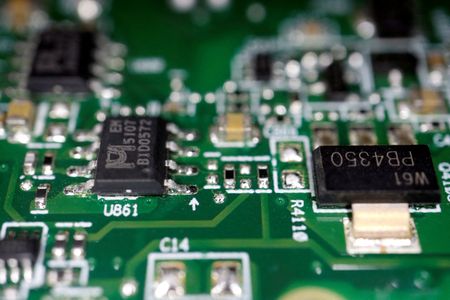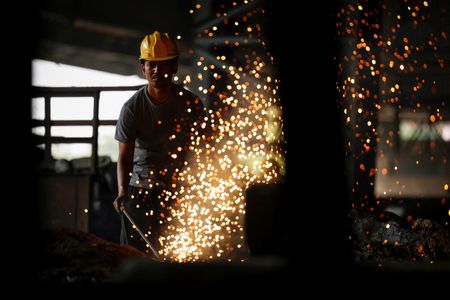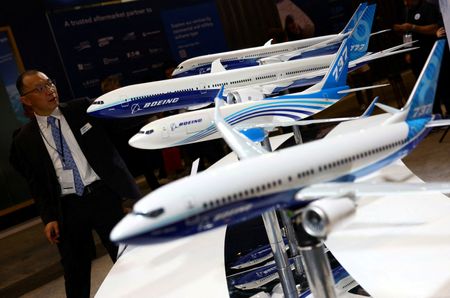By Devjyot Ghoshal and Chayut Setboonsarng
BANGKOK (Reuters) – Thailand aims to have an initial draft of a strategic plan for its semiconductor sector ready in the next 90 days, keen to attract fresh investment amid U.S. President Donald Trump’s renewed trade war with China.
The country’s national semiconductor board will be hiring a consultancy to develop an industry roadmap, Narit Therdsteerasukdi, the secretary-general of the Thailand Board of Investment (BOI) told Reuters.
Narit, who reports to the premier, is also working on roadshows to the United States and Japan to drum up semiconductor investments in Thailand.
The global semiconductor industry has been roiled in recent years as the U.S. and China compete for tech supremacy. Some supply chains have shifted to Southeast Asia and further turmoil is likely in Trump’s second term. Over the weekend, he announced a 10% tariff on Chinese imports as part of a broad plan to improve the U.S. trade balance.
Thailand, Southeast Asia’s second-largest economy after Indonesia, saw a 35% jump in the value of inbound investment applications last year to a decade-high of 1.14 trillion baht ($33.5 billion).
“I expect the value of total applications (this year) to be more than last year’s figure, driven by investment in the electronics and digital sectors,” Narit said.
Thailand ranks second behind India in an analysis of top emerging economies for semiconductor manufacturing, according to a 2024 report by consulting firm A.T. Kearney.
It is targeting around 500 billion baht in new investments in semiconductors by 2029.
“We focus on the power electronics (segment). For example, the semiconductor used in the electric vehicle, data centre or energy storage system,” said Narit. “We think that this is our strength.”
Companies with chip-related facilities in Thailand include Massachusetts-based Analog Devices, Japan’s Sony and Toshiba. German chipmaker Infineon and a subsidiary of Taiwan’s Foxsemicon Integrated Technology have also announced new projects.
Investments in manufacturing printed circuit board, an important component for electrical devices that are used in everything from smartphones to EVs, have also risen rapidly since 2023 in Thailand, according to the BOI.
“The main reason is the trade war,” Narit said, “One of the reasons that investors choose Thailand as their location is our position as a neutral country.”
Thailand faces much competition from Malaysia, which accounts for 13% of global chip testing and packaging and is targeting over $100 billion in investment for the sector.
($1 = 34.0300 baht)
(Reporting by Devjyot Ghoshal and Chayut Setboonsarng, Editing by Edwina Gibbs)






